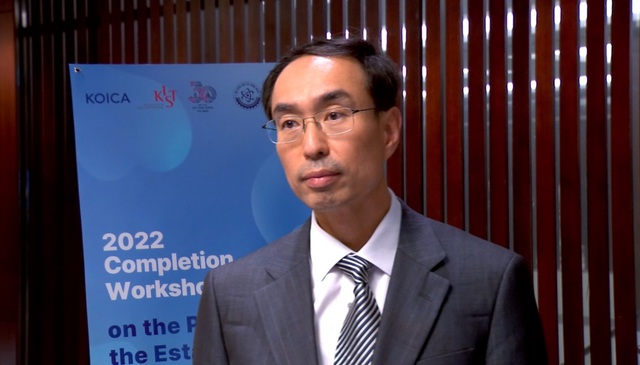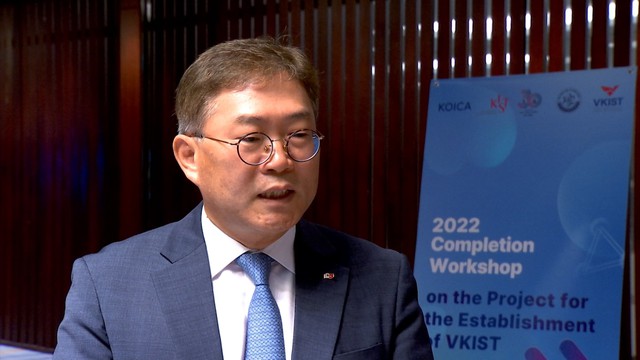Science-technology cooperation-spotlight in Viet Nam-RoK ties
VGP - Cooperation in science and technology between Viet Nam and the Republic of Korea (RoK) is regarded as a key factor to boost both sides’ socio-economic development, seeing multiple prospects to grow further in the upcoming time.

Science Counselor, under the RoK's Embassy in Viet Nam, Yang Ki Sung - Photo: VGP
Science Counselor, under the RoK's Embassy in Viet Nam, Yang Ki Sung and Country Director of the Korea International Cooperation Agency (KOICA) Cho Han Deog granted interviews to the VGP about achievements in the bilateral cooperation in science and technology.
According to Yang Ki Sung, science and technology cooperation has made crucial contributions to the bilateral relationship over the last 30 years, which has been recently elevated to comprehensive strategic partnership.
The Viet Nam–Korea Institute of Science and Technology (VKIST) is the most remarkable cooperation project in science and technology between the two Governments, with a view to assisting Viet Nam in building a global standard science and technology institute that contributes to the nation's industrialization and sustainable development process.
The project also creates a foundation for bolstering science and technology cooperation between the two nations, particularly in such areas as biology, information technology, nano and artificial intelligence.
Via the support of the Korea Institute of Science and Technology (KIST), the project has helped training and nurturing a force of highly qualified researchers, thereby improving the research capacity of VKIST, in particular, and Viet Nam, in general.
Remarkably, the project has tightened linkages between the two nations and opened up a new chapter in the bilateral ties, particularly in science and technology.
Yang Ki Sung expressed his hope that, via the VKIST, the two countries will promote collaboration not only in science and technology but also across all sectors, thus further strengthening the comprehensive strategic partnership.
Regarding the RoK's sponsor for Viet Nam in the time ahead, Cho Han Deog, Country Director of the KOICA said that the agency is actively implementing a number of projects worth about US$300 million in the Southeast Asian nation.
These projects focus on four key areas, including strengthening the national innovation system of Viet Nam through human resource development; good governance through capacity building for the public sector; inclusive and sustainable rural development; and smart cities for sustainable urbanization.

Country Director of the Korea International Cooperation Agency (KOICA) Cho Han Deog - Photo: VGP
According to Cho Han Deog, to become a high-income nation by 2045 and avoid middle-income traps, Viet Nam should enhance capacity building in research and development (R&D).
The VKIST project is considered as a springboard marking a great stride in the bilateral cooperation in R&D, he said, adding that this is the largest-ever non-refundable project the RoK has sponsored for Viet Nam.
The biggest success of the project is building an innovative R&D center in the country, emphasized the Country Director.
To foster coordination in science and technology, the KOICA will make efforts to effectively launch the next phases of the project in accordance with the direction of the RoK's Government.
Besides, KOICA has carried out a project to improve education-training, governance and research at some universities, consisting of the Viet Nam-Korea University of Information and Communication Technology, under the University of Da Nang, University of Medicine and Pharmacy at Ho Chi Minh City and Ho Chi Minh City University of Agriculture and Forestry.
Meanwhile, the KOICA has helped improve the quality of public administrative sector in Viet Nam, remarkably a project on improving the transparency and the quality of adjudication in the Viet Nam People's Court and a project on "Strengthening the capacity of court officers school".
Cho Han Deog noted that the comprehensive strategic partnership will pave the way for both sides to endorse their bilateral cooperation more comprehensively and substantively in all spheres, not only in economics, trade and investment but also in science-technology, training and education.
